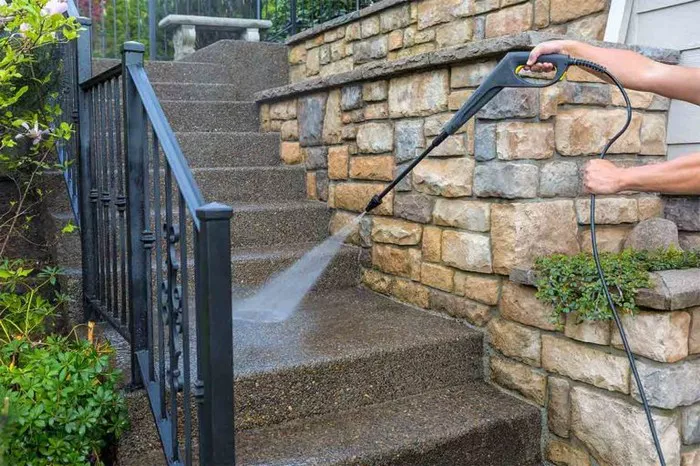Pressure washers have become indispensable tools for homeowners and professionals alike, providing a powerful means to clean outdoor surfaces efficiently. From blasting away stubborn grime on driveways to revitalizing weathered decks, these machines offer convenience and effectiveness. However, there’s nothing more frustrating than when your pressure washer fails to deliver the expected pressure, leaving you with lackluster cleaning results. In this comprehensive guide, we’ll delve into the common reasons behind pressure loss in your washer and provide practical troubleshooting steps to get it back up to full power.
Common Reasons for Pressure Washer Pressure Issues
Damaged Pump
At the heart of every pressure washer lies its pump, responsible for generating the high-pressure water stream essential for effective cleaning. Unfortunately, pumps are also prone to wear and tear, with components like seals, pistons, and valves susceptible to damage over time. A malfunctioning pump can result in decreased pressure output or even complete pressure loss.
Engine Problems
For gas-powered pressure washers, the engine plays a crucial role in powering the pump and generating pressure. Issues such as low oil levels, fouled spark plugs, or fuel supply problems can all impede the engine’s performance, leading to decreased pressure output.
Motor Malfunction
Electric pressure washers rely on motors to drive the pump and create pressure. If the motor experiences issues such as overheating, worn-out brushes, or faulty capacitors, it can result in diminished pressure or complete loss of power.
Using Hot Water in a Cold Water Pump
It’s essential to use a pressure washer with the appropriate specifications for the task at hand. Using hot water in a pressure washer designed for cold water can wreak havoc on the pump’s seals and components, leading to leaks and pressure loss.
Loosened or Damaged Spark Plug
The spark plug is a small yet critical component of gas-powered pressure washers, igniting the fuel-air mixture to power the engine. A loosened or damaged spark plug can disrupt this process, causing the engine to run inefficiently and resulting in decreased pressure output.
Troubleshooting Steps
Check Water Supply
Before diving into more complex troubleshooting, it’s essential to start with the basics. Ensure that the water supply to your pressure washer is adequate and that the hose isn’t kinked or blocked. Insufficient water flow can hinder the pump’s ability to generate pressure.
Inspect Nozzles and Couplers
Clogged nozzles or damaged outlet couplers can restrict the flow of water and diminish pressure output. Take the time to inspect these components and clean or replace them as needed. A simple nozzle cleaning can often restore full pressure to your washer.
Verify Correct Nozzle Selection
Different cleaning tasks require different levels of pressure and water flow. Many pressure washers come with interchangeable nozzles, each color-coded to indicate its spray pattern and pressure level. Make sure you’re using the appropriate nozzle for the job at hand to maximize cleaning effectiveness.
Adjust Unloader Valve
The unloader valve, typically a red knob located on the pump, regulates the pressure output of the washer. If the pressure is too low, try adjusting the unloader valve to increase it gradually. Be cautious not to set the pressure too high, as this can damage surfaces or components.
Check Pump Oil Level
For gas-powered pressure washers, maintaining the proper oil level in the pump is crucial for optimal performance. Check the oil level regularly and top it up as needed using the manufacturer’s recommended oil type.
Inspect Motor Components
If you’re using an electric pressure washer, the motor is a key component responsible for driving the pump. Inspect motor components such as brushes and capacitors for signs of wear or damage. Replace any worn-out parts to restore proper motor function and pressure output.
Investment Advice
Regular Maintenance
Preventive maintenance is key to keeping your pressure washer running smoothly and reliably. Schedule regular inspections to check for any signs of wear or damage, clean filters and nozzles, and replace worn parts as needed. Regular oil changes and pump maintenance are also essential for prolonging the lifespan of your washer.
Quality Components
When purchasing a pressure washer, invest in models equipped with high-quality pumps, engines, and motors. While these may come with a higher upfront cost, they offer superior performance and durability, ultimately saving you time and money in the long run.
Professional Servicing
For complex issues or major repairs, don’t hesitate to seek professional servicing from experienced technicians. They have the expertise and tools to diagnose and address issues effectively, ensuring your pressure washer is restored to optimal working condition.
User Manuals
Finally, don’t overlook the importance of reading and understanding your pressure washer’s user manual. It contains valuable information on troubleshooting, maintenance procedures, and safety precautions. Refer to the manual whenever you encounter issues or have questions about your washer’s operation.
Conclusion
In conclusion, a pressure washer that fails to build up pressure can quickly derail your cleaning efforts and cause frustration. By understanding the common reasons behind pressure loss and following the troubleshooting steps outlined in this guide, you can effectively diagnose and address issues with your pressure washer. Remember to prioritize regular maintenance, invest in quality components, and seek professional servicing when needed to ensure efficient cleaning and prolong the lifespan of your pressure washer. With proper care and attention, your pressure washer will continue to deliver powerful cleaning performance for years to come.

